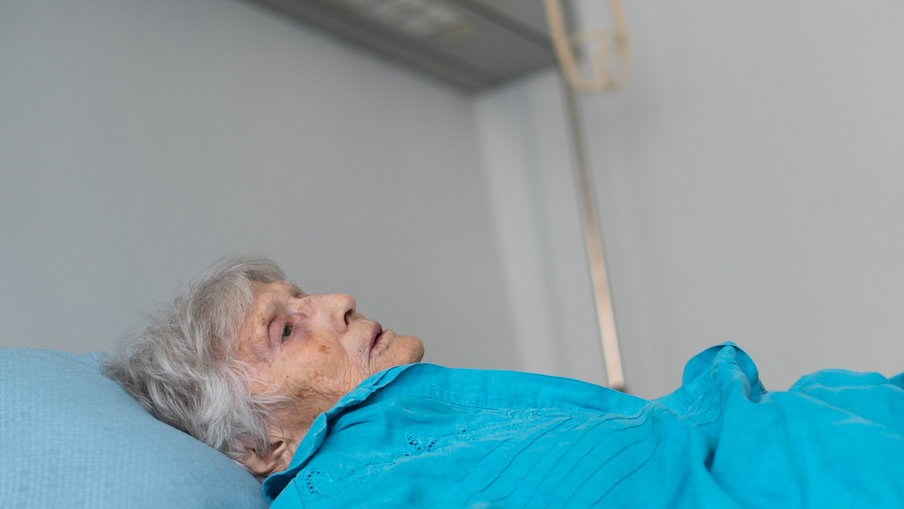Prepping Your Senior for a Stress-Free Hospital Discharge Experience

Seniors and caregivers often confront a seemingly endless list of preparations and tasks as they approach the transition from hospital to home care. The transition from inpatient care to outpatient treatment can be a confusing, stressful time for patients. Not only does the patient need to obtain the necessary medication and find rides home, but some may experience prolonged hospital stays because of the stress surrounding this change.
To ensure a stress-free hospital discharge experience, seniors and their caregivers should prepare for the transition. Taking the necessary steps now will help them feel more relaxed and accomplish their process in a more enjoyable way.
What is a Hospital Discharge?
Hospital discharge is the process of transferring a patient from a hospital to another type of care facility. Patients may be discharged from the hospital if they no longer need medical treatment or are ready to return home. They may also be discharged while still in the hospital to receive specialized care on an outpatient basis.
A discharge plan includes information about what medications and treatments the patient will need after leaving the hospital, including any follow-up appointments that need to be scheduled. It should also have information about any restrictions on activity or diet and other instructions for managing at-home care.
On the other hand, Seniors and caregivers should be prepared for a hospital discharge to include medical and non-medical aspects. Some non-medical factors include completing financial records and getting information from doctors and other providers, if applicable.
Why are Seniors Struggling with the Hospital Discharge Process?
Seniors and their families face many challenges when it comes to the hospital discharge process. The primary challenge involves changing caretakers, which can be difficult for older adults who may be accustomed to a routine. Another challenge is caring for the patient at home after they have been discharged from the hospital.
Another concern of seniors and their families is that more emphasis should be placed on getting the patient home as quickly as possible, even if they are still getting ready or need to go home. The transition period from hospital to home care can be frustrating and confusing for seniors coping with the stress of a prolonged hospital stay.
A successful hospital discharge experience starts with a good plan. Seniors and their caregivers should consider these common challenges and take the necessary steps to avert them before a discharge is scheduled. This will help them take their minds off the stress of a prolonged hospital stay and make the transition from hospital to home care more relaxed.
What are some of the Challenges Seniors Experience During and After the Discharge Process?

Older adults experience a lot of stress during the hospital discharge process. Here are some of the challenges they may face:
- Lack of knowledge about insurance coverage and payment options
- Inability to communicate effectively with healthcare providers because of language barriers or hearing loss
- The need for assistance with basic activities such as bathing and dressing
- Limited mobility due to medical conditions or age
- Difficulty understanding discharge instructions
- Difficulty accessing and understanding medication instructions
- Potential for readmission due to medication errors or poor aftercare
- Uncertainty about what to do at home after a hospital discharge.
- Feeling rushed during a hospital discharge transition process.
- Not knowing if there is a need for follow-up appointments after leaving the hospital.
A caregiver can help resolve these challenges. They can communicate effectively with healthcare providers and help seniors remain active and independent after a hospital discharge. Also, most caregivers are familiar with the challenges of hospital discharge planning and can offer advice on alleviating them.
How Should Seniors Prepare For a Hospital Discharge?
Many people’s experiences with hospitals are unpleasant, which is why it can be upsetting to think about leaving the hospital after surgery. Although it can be difficult to think about, there are steps seniors and caregivers can take to avoid anxiety while waiting for their next step in the hospital discharge process.
1. Gather Necessary Information and Paperwork

Before you arrive at the hospital, it is essential that you have all of your medical records in order. This includes prescriptions, current medications, insurance information, and social security numbers. If you do not have these papers handy, you may take longer to complete the discharge process.
To ensure that all of your records are correct, ask your doctor or caregiver to bring them to the hospital. This way, you will avoid any problems resulting in delays or confusion. You should also take any financial paperwork, including bank statements and retirement accounts.
2. Review Hospital Discharge Instructions With Your Doctor
Your doctor will provide specific instructions on how to care for your senior during their recovery period after being discharged from the hospital. Make sure that these instructions are clear before leaving the hospital so you can follow them when caring for your loved one at home.
If you need help paying for your loved one’s hospital bill, speak with the hospital staff about possible assistance. If you don’t find out in advance, you might arrive at the hospital and they might tell you that you cannot claim them as a dependent.
3. Find an Appropriate Caregiver

Your loved one will need help adjusting to life at home again, so make sure they have someone who can support you while you attend to other matters (like running errands or taking care of other family members). This person should be familiar with their daily routine and knows how to handle any potential medical issues that may arise after leaving the hospital.
For a stress-free hospital discharge, choose a caregiver who can provide for your senior emotional support during the transition period. To find the right caregiver, ask family members or a professional to recommend someone willing to take on this responsibility. You should also consider other needs your loved one may have, such as transportation and meals.
4. Make Arrangements to Have Necessary Medical Equipment and Prescriptions Available
It’s crucial that you have the necessary medical equipment and medications available for your loved one when they go home. This will ensure they can take their medications properly, preventing unnecessary complications.
If you need clarification on the procedure for obtaining the necessary medical equipment and medication, ask the hospital staff to help you arrange it before you leave. If you have to wait a while before discharge, remember that healthcare providers may use this time to organize your hospital stay and ensure it runs smoothly.
5. Arrange for Transportation Services
Ensure you arrange your loved one’s transportation needs, such as a wheelchair, a walker, or an accessible vehicle, to get them home safely. Ask the hospital staff to provide these transportation services for your loved one so that you do not have to take responsibility for organizing these things at the last minute. Ensure that their hospital discharge plan includes a list of transportation needs and their insurance information so that you can work through any problems that may arise with this service.
6. Stock Up on Healthy Food to Maintain a Healthy Diet

Prepping your senior for a stress-free hospital discharge experience begins with stocking up on healthy, easy-to-prepare meals. This will ensure that your senior gets the nutrition they need to maintain energy levels throughout the transition back home.
With a list of favorite meals in mind, make sure you have any food items they may need readily available at home. This will include fresh fruits and vegetables, lean proteins like fish or poultry, and dairy products. You should also purchase a variety of condiments and other cooking utensils so that they can make healthy foods to eat at home.
7. Set Up Follow-up Care Appointments
Once you get home, you must schedule follow-up care appointments with your doctor to ensure your loved one is recovering well. You can use this time to determine when they should be back at the hospital if they are experiencing any complications or discomfort. Make sure your senior maintains a healthy diet and lifestyle while recovering from surgery.
To discuss discharge planning with your doctor, ensure this information is readily available to you and your caregiver.
Final Thoughts
Your senior loved one will likely experience a lot of emotions while in the hospital and awaiting discharge. These steps can help make the transition back home less stressful and more successful. This will help your loved one maintain health and remain comfortable throughout their recovery.
Suppose you or your loved ones are in need of professional care, especially those experiencing chronic health issues. In that case, Serenity Senior Care can provide you with the most comprehensive and compassionate care available.
To learn more about our service, contact us today! We are happy to answer your questions and provide more information.


